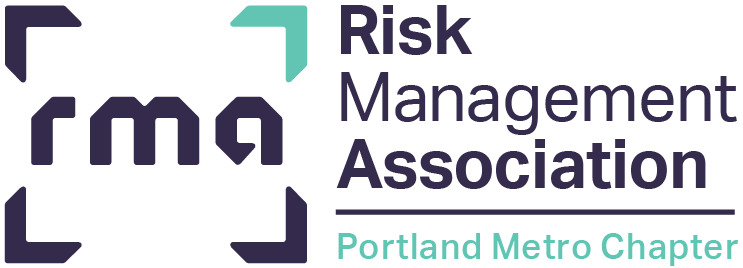In a whirlwind legislative session that lasted three days, the Oregon Legislature enacted a bill on June 26, 2020 designed to give relief to homeowners and landlords hard hit by the Covid-19 crisis. The bill, HB 4204, has two primary components. First, it establishes a temporary moratorium on judicial and non-judicial foreclosure of any type of real estate secured loan. The moratorium ends on September 30, 2020 unless the Governor extends it by executive order. Second, if a borrower has suffered a financial setback due to the Covid-19 crisis, the lender must permit the borrower to defer payments that come due during the emergency period ending September 30, 2020 (unless the Governor extends the period).
Loan Applicability
HB 4204 applies to any loan secured by real estate in Oregon, consumer or commercial and irrespective of whether the lender is located in Oregon. It does not apply to loans secured by properties outside of Oregon, even if the lender is in Oregon. HB 4204 was intended to work in tandem with another bill that creates a temporary moratorium on evictions. Legislators believed that if they were mandating relief for tenants, they also needed to mandate relief for landlords affected by tenant non-payment. Legislators further believed that without payment deferral, a temporary moratorium on foreclosures would simply delay foreclosures rather than avoid them. However, in reality foreclosure avoidance may still simply end up as a foreclosure delay in many cases.
Foreclosure Moratorium
The bill prohibits initiating a judicial or non-judicial foreclosure based on non-payment during the “emergency period” which runs from March 8, 2020 through September 30, 2020. The Governor may extend the emergency period by executive order. Foreclosures that were initiated before the effective date of the bill are suspended until the end of the emergency period. Time limitations for completing foreclosures begun before the effective date of the legislation but not yet completed will be tolled (i.e. extended) for the duration of the emergency period. In other words, after the emergency period ends, lenders that have already initiated foreclosure may continue the process (subject to statutory requirements for notice of resumption).
Foreclosures for non-monetary defaults (i.e. destruction to the property, illegal use, transfer of the property, failure to maintain insurance, etc.) are not affected by the bill; it only covers foreclosure for monetary defaults.
Loan Deferral
HB 4204 provides mandatory loan payment deferral relief for borrowers affected by the Covid-19 crisis. If a borrower satisfies the applicable requirements to show Covid-19 hardship, the lender must allow the borrower to defer payments that would be due during the emergency period. The lender may not charge late fees or a default rate of interest-based on the borrower’s failure to make payments due during the emergency period.
Unless the lender and borrower agree otherwise, the effect of the deferred payments is to create a balloon payment at the scheduled maturity date. The lender may continue to charge interest on the loan in accordance with the contract terms, and additional interest accrued as a result of the skipped payments will be part of the balloon amount due at maturity. The bill does not mandate any particular method of interest accrual, payment application, or other aspects of the loan contract terms. Allowance of skipped payments is the only contract term affected by the new law. The bill does not prohibit lenders from agreeing to different deferral arrangements but sets the baseline requirement for what lenders must do if no other agreement is reached with a borrower who requests relief.
In order to take advantage of the loan deferral offered by this legislation, a consumer must certify that they are unable to make their payments because of a loss of income related to the Covid-19 pandemic. Having made that certification, a consumer borrower is entitled to a deferral of any payments due between March 8, 2020 and September 30, 2020.
A commercial borrower must provide documentation as required by the lender to demonstrate a loss of income that creates financial difficulty.
Additional Prohibitions for Commercial Loans
For commercial loans, HB 4204 also prohibits lenders from taking certain remedial actions that might be employed in the event of a payment default. These actions include initiating cash management procedures, lockbox arrangements, taking over collection of rent payments, and declaring a default based on financial covenants to the extent that the default is based on inadequate operating revenue due to the pandemic.
Federal Preemption
By its terms, HB 4204 applies to all lenders, including non-financial institution lenders and all financial institutions, whether state or federally chartered. This leads to the question for national banks of whether some provisions of HB 4204 are preempted by the National Bank Act and related regulations. There is probably little upside in raising a federal preemption issue for a specific loan for such a relatively short period, but there may be an argument available if necessary.

About Gustavo Cruz, Jr.
From the business of banking to the law of banking, Tavo knows the finance industry from the inside out, and has a depth of understanding of the interplay of legal, business, and regulatory issues facing financial institutions.
He has a rare trifecta of financial services experience. He worked as a commercial lender and credit approval officer, served as in-house counsel for US Bank in the Special Assets Group, and has many years of experience as outside counsel for financial service providers of all sizes.
With such a versatile experience, Tavo is able to identify his clients’ pain points, walk in their shoes, and effectively protect their interests. He also handles a broad range of business transactions, including mergers and acquisitions, real estate deals, business agreements, and public and private securities offerings.
Tavo is a Portland native and is active in the community. He is the Board Chair of Prosper Portland (formerly known as the Portland Development Commission), the urban renewal agency for the City of Portland, and a board member of Portland Center Stage. He has served as the Chair of both the Business Law and Securities Law sections of the Oregon State Bar, in addition to numerous other boards and committees.
About Marisol McAllister
Marisol is a master at closing real estate deals because she has experience from all sides so can quickly analyze the issues and zero in on what needs to be done. She steers clients in the right direction and gives them the confidence to make good decisions.
Another trait that helps Marisol successfully close commercial transactions: she is great at developing effective relationships and works well with all parties to efficiently finalize deals.
While Marisol’s practice includes real estate, financial services, and business, she finds real estate development and transactions to be the most rewarding because no two deals are the same. She enjoys diving into difficult issues, simplifying them for her clients, and expanding her level of expertise through new experiences.
